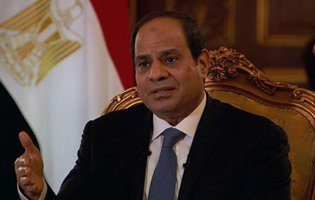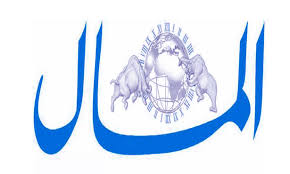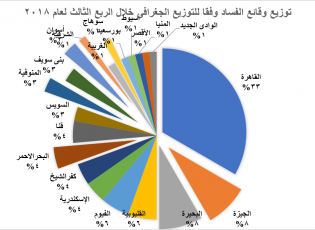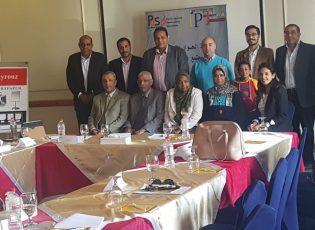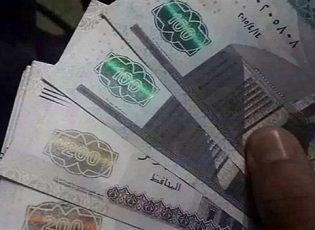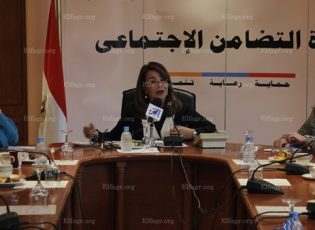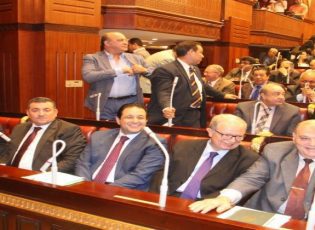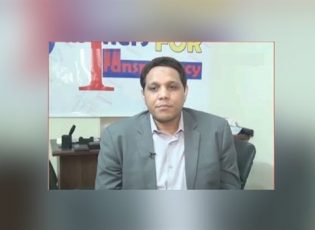I wrote Aya Nabil
The issue of the Minister of Agriculture will not be the last in light of the continuing administrative and legal situation in Egypt as it is, thus the legal experts and associations concerned with monitoring corruption incidents agreed, stressing that there are a number of steps that Egypt has been very late in establishing over the past years, which have facilitated the entrenchment of corruption In all fields, the doors were opened to his access to the smallest details in life in general, and that the continuation of this delay will not prevent the repetition of the last corruption case, in which a number of ministers in the previous Mehleb government are accused. Gaps in old laws Gaps in the old laws of anti-corruption bodies that do not grant them independence and do not oblige the investigation authorities to take their reports, through the fake committees established by Mubarak under the name of "fighting corruption" and have not held any meeting since 2008 until now, in addition to the inherent bureaucratic system In the administrative system, which helps corruption and does not track it down the most that hinders it, the most prominent reasons need to take effective steps from the next government and parliament to deal with them. Partners for Transparency Foundation, in its August report to monitor corruption incidents, revealed an increase in incidents of corruption by 46% from what the institution monitored in the previous July, and returned the reason for this to the absence of integrated legislative interventions that can address the phenomenon of corruption, and the Foundation considered that one of the reasons The main thing is its high rates in various sectors. Walaa Jad al-Karim, head of the organization, explained that most of the old laws contain many loopholes that allow corruption to continue and the perpetrators to escape punishment, adding that what was approved by the 2014 constitution in Article 218 of the state’s commitment to fighting corruption has not yet been activated. Walaa explained that the legislative authority that was used to issue many laws, whether during the era of former President Adly Mansour or the current President Abdel Fattah al-Sisi, did not approach anti-corruption laws, although we are in dire need of that, given its high rates in various sectors, which has not changed. Its mechanisms before or after the revolution, which means, according to Walaa, that laws have become a catalyst for corruption and not a deterrent to it as expected. The role of the next parliament and indicated that the parliament must put at the forefront of its priorities the remedy of this defect, adding, “It is not logical that the appointment of the leaders of these bodies remains in the hands of the bodies that are already monitoring them. The People's Assembly must decide on this,” explaining that the institution is based in The current time is preparing for a project to monitor all old laws related to combating corruption at all levels, as well as developing proposals for new draft laws and their mechanisms, which is scheduled to end in the first quarter of 2016. The laws of “Illicit Gain Authority”, “Central Auditing Agency”, “Administrative Control”, “Reconciliation in Construction Violations”, “Local Administration” and “General Authority for Financial Supervision and the Central Bank” are the most prominent among the laws that the institution’s researchers monitor in its need. For the amendment, for example, the independence stipulated by the constitution for these bodies is still suspended. Although Article 215 stipulates that the laws according to which independent bodies and supervisory bodies operate shall make them enjoy legal personal equipment and technical, financial and administrative independence, the state has not taken Any step to amend laws on the ground in order to modify their subordination to the ministries and achieve their independence, in addition to the fact that there are a number of new laws that were supposed to be issued in the past period according to their imposition in the constitution while the government is still suspending them to be broadcast in the next parliament, such as the General Authority for Supervision. On catering. It seems that the laws issued in the previous period related to the regulatory bodies did not achieve the established constitutional principles, such as Law No. 89 of 2015 regarding cases of exemption of heads and members of independent bodies and regulatory agencies from their positions, which provoked many reactions about its contradiction with what was approved by the constitution To protect the members of these bodies in a way that guarantees their independence, that their appointment and dismissal be through Parliament's approval. Essam Al-Islambouli: Corruption is the second most serious issue facing the stability of the state after terrorism. For his part, Essam Al-Islambouli, the constitutional jurist, said that corruption in Egypt is the second most serious issue facing state stability after terrorism, adding: “We are corruption that has lived through the atmosphere of the state and has been rooted for 41 years. Since we pursued the policy of economic openness, or as Ahmed Bahaa El-Din described it - Al-Sadah Maddah - which was related to what Sadat said at the time, such as: What will not be enriched in my age, will not be enriched, and other concepts that began to consolidate the open staircase policy. Al-Islambouli clarified that all laws related to regulatory agencies are useless without effective amendments to them, starting with granting them independence, and only Parliament and the judicial control of its members are subordinate to it, and most importantly, according to him, is obliging the prosecution to initiate the investigation of the reports submitted by these authorities, indicating The biggest disasters in these laws are that they do not oblige anyone to investigate as if they are just reports for reading. Rather, a specific time must be set for the investigation, saying, “The head of the Central Auditing Agency announced before about corruption cases two years ago and has not yet been investigated, and there are hundreds of reports that reveal corruption Administrative and political rights of many personalities were not moved by the prosecution, and we find some of them, unfortunately, candidates for the upcoming elections. Establishing an anti-corruption commission and adding, “Corruption in Egypt is rampant in all areas, unfortunately, including these oversight bodies. Therefore, we need first to establish a national council or commission to combat corruption, in accordance with Article 218 of the Egyptian Constitution, provided that it includes in its membership figures known for their integrity, transparency and ethics. Experience in political, social and legal work and representatives of regulatory bodies, and it must review laws and form all regulatory bodies. It is noteworthy that Egypt signed the 2008 International Anti-Corruption Agreement issued by the United Nations, which provides for the establishment of a national anti-corruption body, and it is the mechanism reached by the international agreement in order to be the greatest watchdog over all other oversight bodies and to combine in their tasks the legislation and Reviewing the loopholes and developing an integrated strategy to confront it, which is consistent with what was stipulated in the Egyptian constitution, but until now the various governments that came to power in Egypt have not moved to activate this agreement, which we sign among 165 countries worldwide. Mahmoud Kebish: The administrative structure is collapsing and contains many complications that lead to corruption. Dr. Mahmoud Kabish, former dean of the Faculty of Law at Cairo University, said that the laws that impose penalties in Egyptian legislation are too many, but they wait until violations are revealed without setting the rules for disallowing To make the same mistake, adding, "The administrative structure in Egypt is collapsing and contains many complications that drive people from the ground up to corruption, and no one can conclude his interests other than what is put in the drawer, and what prevents behavior control." Kabish pointed out that the generality of land ownership rules, for example, gives a great opportunity to all those in charge of administering them to commit violations, the same, for example, to renew traffic licenses, road paving projects, and other administrative matters that establish a bureaucracy at the same time that makes the regulatory authorities write reports to no avail.
Short link: https://pfort.org/en/?p=286


